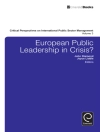For decades, most anti-capitalist and anti-imperialist movements identified radical transformation with capturing state power. The collapse of these statist projects from the 1970s led to a global crisis of left and working-class politics. But crisis has also opened space for rediscovering alternative society-centered, anti-capitalist modes of bottom-up change, operating at a distance from the state. These have registered important successes in practice, such as the Zapatistas in Mexico, and Rojava in Syria. They have been a key influence on movements from Occupy in United States, to the landless in Latin America, to anti-austerity struggles in Europe and Asia, to urban movements in Africa. Their lineages include anarchism, syndicalism, autonomist Marxism, philosophers like Alain Badiou, and radical popular praxis. This path-breaking volume recovers this understanding of social transformation, long side-lined but now resurgent, like a seed in the soil that keeps breaking through and growing. It provides case studies with reference to South Africa and Zimbabwe, and includes a dossier of key texts from a century of anarchists, syndicalists, insurgent unionists and anti-apartheid activists in South Africa. Originating in an African summit of radical academics, struggle veterans and social movements, the book includes a preface from John Holloway.
关于作者
John Holloway is a professor of sociology at the Instituto de Ciencias Sociales y Humanidades in the Benemérita Universidad Autùnoma de Puebla, Mexico. He has published widely on Marxist theory, on the Zapatista movement and on the new forms of anticapitalist struggle. His book Change the World Without Taking Power has been translated into eleven languages and has stirred an international debate. His book Crack Capitalism (Pluto, 2010) takes the argument further, suggesting that the only way in which we can think of revolution today is as the creation, expansion, multiplication, and confluence of cracks in capitalist domination.












